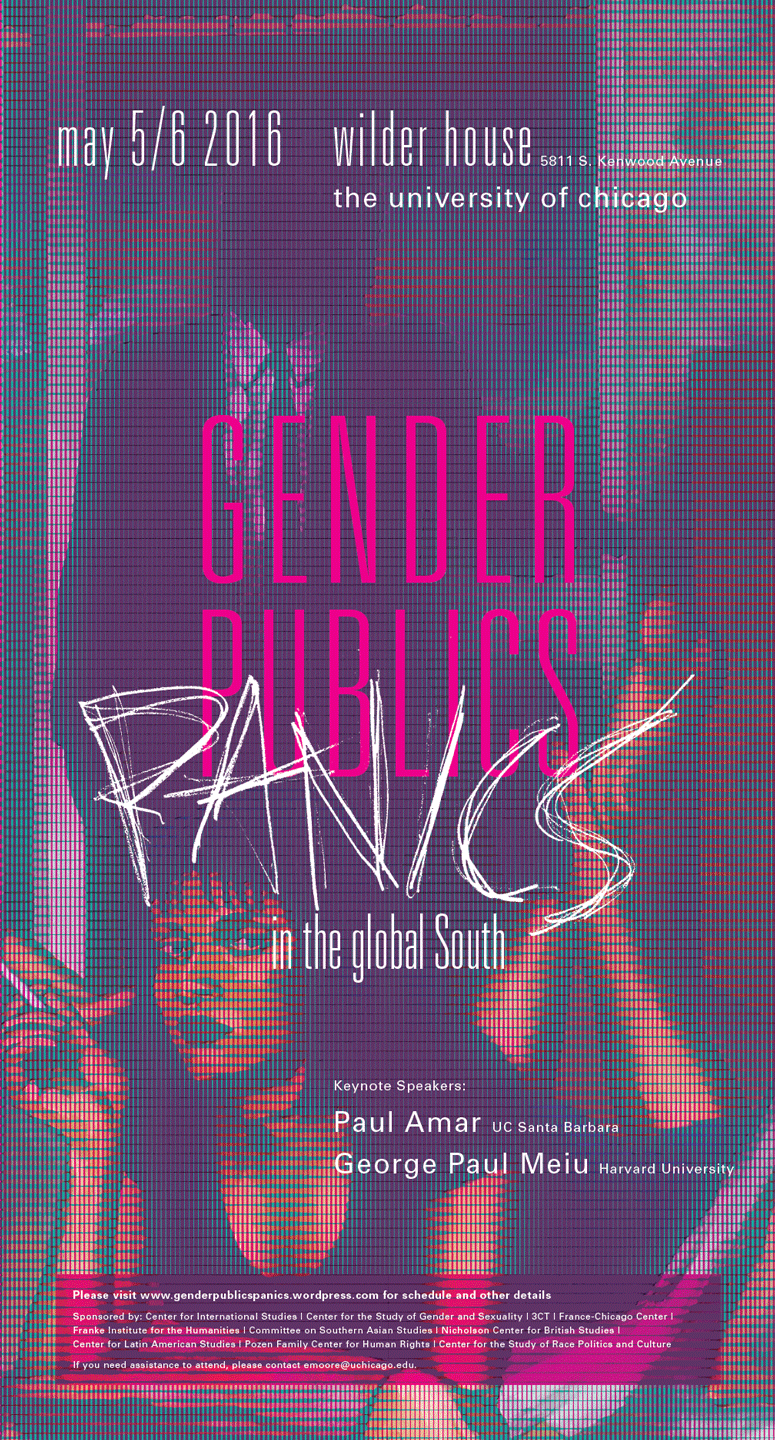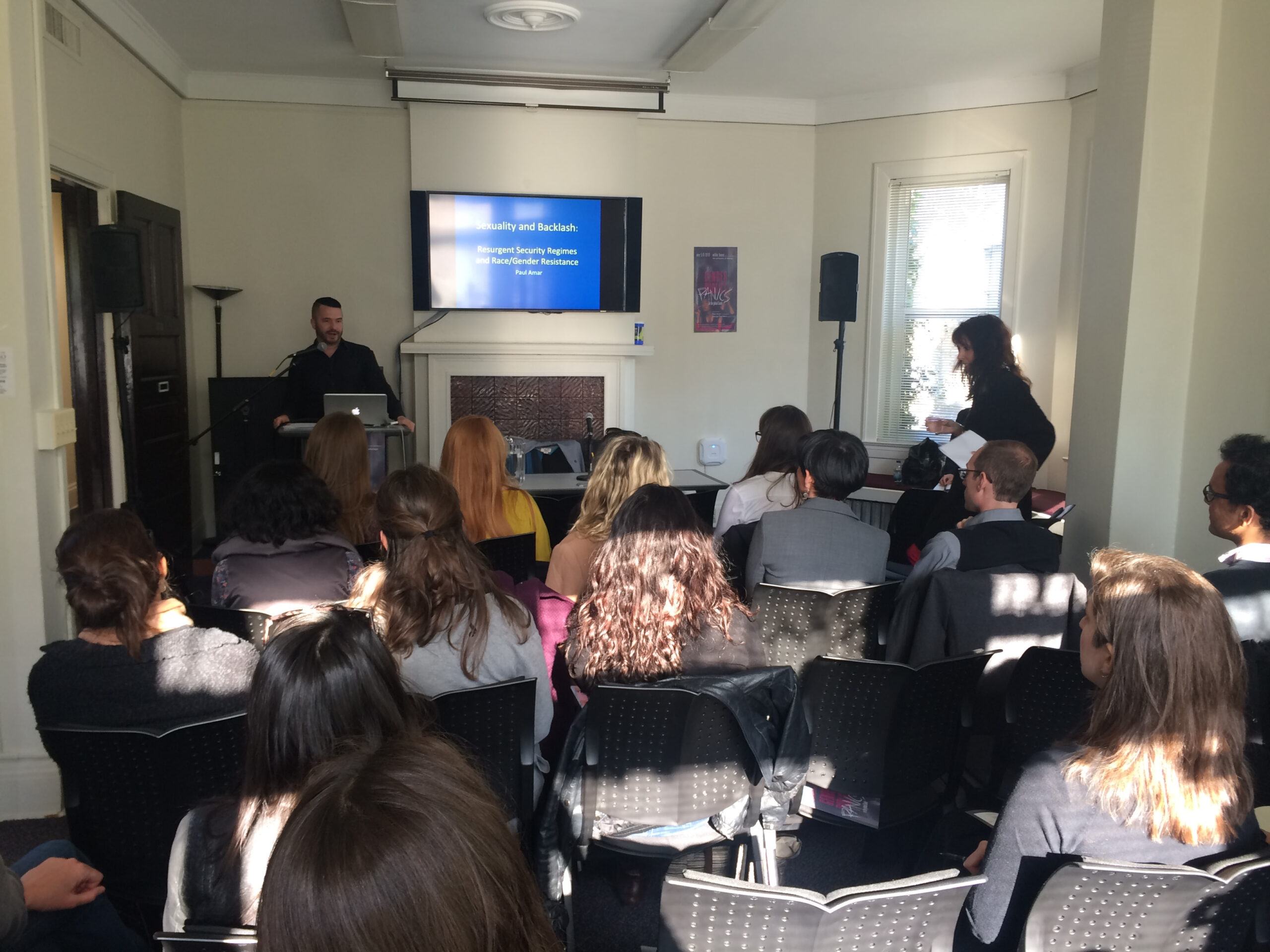In the past two decades, changing economies and new, international forms of governance, not least the human rights industry, have transformed social landscapes across the global South. In many parts of the world, these changes have provided women with economic opportunities and made images and iconography of women—and women themselves—increasingly visible in the public spheres. Paradoxically, however, women’s increased economic success and political recognition has been accompanied by “moral panics”—both global and local—over the visibility, mobility, and sexuality of women and girls. For example, in South Africa, where marriage rates have reached new lows and single mothers have become eligible for state relief through a newly-instated Child Support Grant, men and elders accuse young mothers of abusing their rights, upending the moral order. Both Uganda and Kenya, where national constitutions guarantee gender quotas for elected politicians, have also recently passed national legislation that seeks to regulate women’s clothing (i.e. the so-called “Miniskirt Bill” passed in Uganda in 2014). According to media reports, this legislation was initially enforced by groups of vigilantes. Meanwhile in Guatemala, as a number of organizations to promote the rights of women have emerged in the aftermath of the war, making it seem as if indigenous women are now more institutionally empowered than ever, rates of domestic violence have increased throughout the country. And in India, where women have been particularly quick to take advantage of the new openings in the liberalizing economy, they have also been targets of sexual assault, often justified in starkly moralizing and patriarchal terms.
These observations suggest some broadly similar patterns across a range of contexts. Apparently similar phenomena, however, may reveal different social, cultural, and political processes. Given these observations, we invite papers exploring new formations of, or contests over, gendered and generational power emerging in the global South. In what ways do conflicts over women’s visibility and mobility correspond to the reconfiguration of (in)equalities between men and women? What role does the circulation of women’s human rights discourses play in this process? How do these conflicts relate to ongoing changes in kin relations, regimes of love, and new forms of state regulation? And how does attending to new social panics reveal the shifting lines of contemporary citizenship and the way in which gender figures in these arrangements? Posting these questions, we seek to examine the ways women and men, in their everyday lives, negotiate both new forms of access to public spheres—be they economic, political, professional, or the arts—and the moral panics that access incites.
THURSDAY, MAY 5
5:30pm — Keynote
Paul Amar, UC Santa Barbara
“Sexuality and Backlash: Resurgent Security Regimes and Race/Gender Resistance in Contemporary Brazil and Egypt”
FRIDAY, MAY 6
8:30am — Coffee and Light Breakfast
9:00am — Opening Remarks
Jennifer Cole, University of Chicago
9:10am — Panel I: Urban Panics
Sofia Fenner, University of Chicago
“Sexual Assault, Anti-Harassment Movements, and the State in Post-2011 Egypt: A Participant’s Response”
Erin Moore, University of Chicago
“Sex, Money, and Miniskirt Panic in Uganda”
Lesley Braun, University of Chicago
“Exposed to the Public: The Morality of Women’s Work in Congo”
Sneha Annavarapu, University of Chicago
“Behave Yourself! – The Cultural Politics of PDA in Bombay/Mumbai”
Discussant: Tarini Bedi, University of Illinois at Chicago
11:00am — Coffee
11:15am — Panel II: NGO Technocracies
Jay Sosa, University of Chicago
“The Sense of Violence, The Feel of Statistics”
Julia Kowalski, Williams College
“Is Gender to Kinship as Global is to Vernacular? Theorizing Women’s Rights Expertise in Indian Anti-Violence NGOs”
Camille Roussel, University of Chicago
“An ‘Epidemic of Child Pregnancy?’ Public Health, Indignity and the Girl Child in Guatemala”
Kimberley Walters, California State University Long Beach
“Humanitarian Whip of the State: Anti-trafficking and the Violence of Rescue in India”
Ali Atef Abdelkader, University of Chicago
“Law in the Shadow of Women’s Rights: the ‘End Human Trafficking’ Campaign through Egyptian Eyes”
Discussant: Sonali Thakkar, University of Chicago
1:15pm — Lunch
2:30pm — Panel III: Gendered Citizenships
Brady G’sell, University of Michigan
“Multiple Maternities: Seeking Support in South Africa and the Performance of Motherhood”
Michael Chladek, University of Chicago
“Buddhist Monasticism and the Transformation of Gender in Thailand”
Vivian Solana, University of Toronto
“Reckoning with the Hypervisibility of the Saharawi Revolutionary in Her Struggle for National Liberation”
Kathleen Rice, University of Toronto
“Anxieties about Equality: False Beating and Rape Accusations in Rural South Africa”
Discussant: Caroline Bledsoe, Northwestern University
4:15pm — Coffee
4:30pm — Closing
George Paul Meiu, Harvard
This event is co-sponsored by the Committee on African Studies, the Center for International Studies, the Center for the Study of Gender and Sexuality, the Chicago Center for Contemporary Theory (3CT), the France-Chicago Center, the Franke Institute for the Humanities, the Committee on Southern Asian Studies, the Nicholson Center for British Studies, the Center for Latin American Studies, the Pozen Family Center for Human Rights, and the Center for the Study of Race, Politics, and Culture.

